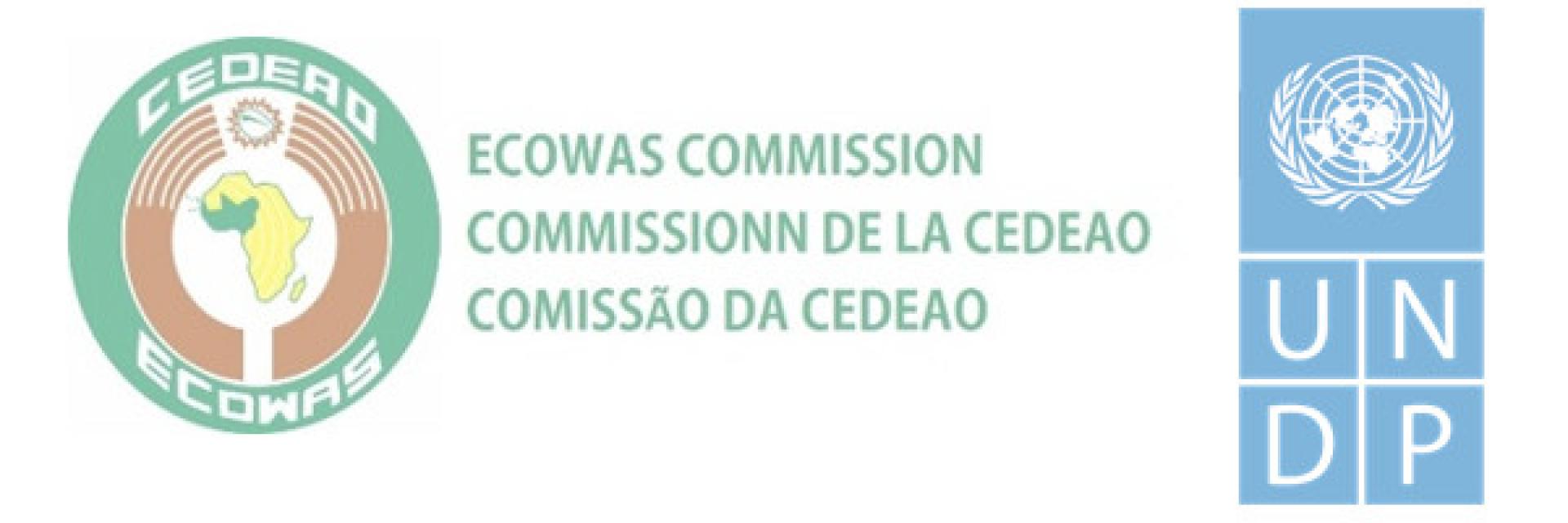12 April 2021, Accra – The Economic Community of West African States (ECOWAS), in partnership with the UN Development Programme (UNDP), is delivering a series of capacity building workshops in Ghana and Cote d’Ivoire for women traders and producers in the ECOWAS region with the aim of guiding them on market entry and operations under the African Continental Free Trade Area (AfCFTA).
The workshop series kicked off today in Accra, Ghana, the headquarters of the AfCFTA Secretariat, and brings together 20 women traders from the 5 English-speaking member states of the ECOWAS region (Nigeria, Ghana, Sierra Leone, Liberia and Gambia). They represent the agricultural, agroprocessing, textiles, arts and crafts sectors, as well as trade development agencies.
Dr. Bolanle Adetoun, Acting Director of the ECOWAS Gender Development Centre, who represented ECOWAS Commissioner for Social Affairs and Gender, Dr. Siga Fatima Jagne, said women traders “play critical roles in African economies.” The capacity building programme, she continued, “is intended to highlight opportunities within the AfCFTA for ECOWAS traders, especially women, and contribute to an understanding of strategies and approaches to enhance value addition for goods and services within the framework of the AfCFTA.”
The workshops aim to foster direct linkages between SMEs in the ECOWAS region and SMEs and trade groups in Central, East and Southern Africa and various trade facilitation agencies will provide practical information to guide market entry and operations for SMEs. Sessions include: i) Understanding the AfCFTA, ii) ECOWAS and the AfCFTA, iii) Importing and exporting in the AfCFTA, iv) AfCFTA opportunities in Central, East and Southern Africa, v) Financing scaling in the AfCFTA, and vi) Operational tools of the AfCFTA.
Women and youth, two groups with the potential to drive the transformation of Africa’s economies, must be mainstreamed into national and continental frameworks in order to guarantee and fully harness the benefits of the AfCFTA. “Women must lead the way for economic independence in Africa,” emphasized Mr. Silver Ojakol, Chief of Staff at the AfCFTA Secretariat. “40% of intra-African trade is dominated by micro, small and medium sized enterprises (MSMEs). These businesses are mostly managed by women and youth and form a significant segment of the export portfolio within Africa.”
The 3-day workshops will each highlight the requirements for exports to various African countries, discuss e-commerce as a tool for exploring new markets, and provide an overview of financing instruments that can be utilized by women-led SMEs as they scale across borders.
“Women are Africa’s traders. If you look at any market, and in fact any border of this continent, the majority of traders will be women,” remarked Ms. Silke Hollander, UNDP Deputy Resident Representative in Ghana. “However, women remain at the lower rung of value chains in the agricultural and services sectors. The AfCFTA must account for and address the challenges women face.”
Trading under the preferential terms of the AfCFTA commenced on 1 January 2021. The AfCFTA will create an African market for goods and services covering 1.2 billion people and a combined Gross Domestic Product of US$3 trillion, building on the progress towards integration achieved in regional economic communities such as ECOWAS. All ECOWAS member states have signed the AfCFTA Agreement, and 12 of 15 member States have deposited instruments of ratification.
Representing the Minister of Trade and Industry in Ghana, Mrs. Kosi Yankey, CEO of the Ghana Enterprises Agency, urged the participants to “work together and not in silos”, adding, “we want an inclusive strategy for implementation. 80% of businesses are SMEs, and we cannot implement the AfCFTA without focusing on SMEs. That would leave out a whole generation of economic development in any nation.”
The AfCFTA will create opportunities for traders, producers, service providers and investors to source cheaper inputs, scale businesses, increase exports, especially value-added products, and develop beneficial regional value chains. Intra-African trade records a higher incidence of trade in higher-value goods, highlighting a market opportunity for producers originating from the ECOWAS region.
The workshop series is part of a more extensive capacity building programme on the AfCFTA, which commenced with a training of trainers in Freetown, Sierra Leone, on 7-9 April. A third workshop will convene French and Portuguese-speaking traders and trade associations in Abidjan, Cote d’Ivoire, on 20-22 April. The series is also organized in partnership with the AU Commission, the AfCFTA Secretariat, the UN Economic Commission for Africa, the International Trade Centre, Afrexim Bank and GIZ.
**
About ECOWAS
The Economic Community of West African States (ECOWAS) was established on May 28, 1975 through the Lagos treaty. ECOWAS is a 15-member regional body with a mandate of promoting economic integration in all fields of activity of its member states. As one of the pillars of the African Economic Community, ECOWAS was set up to foster economic integration by creating a borderless region where the population has access to its abundant resources under a sustainable environment, and promote good governance and democracy. For more information, please visit www.ecowas.int.
About UNDP
UNDP is providing support to the implementation of the AfCFTA at national, regional and continental levels. This support includes direct support to countries, capacity building for small and medium scale enterprises, fostering linkages between SMEs in different regions, research, and support for developing trade-enabling technologies through the Accelerator Labs. In 2020, UNDP published The Futures Report: Making the AfCFTA Work for Women and Youth, a narrative by producers, traders and policy officials on the critical importance of small and medium scale enterprises in driving intra-African trade.
For media inquiries, contact:
Monka Sandra OULATE, Director Communication, ECOWAS soulate@ecowas.int
Michelle Mendi Muita, Regional Programme Communications Specialist, UNDP michellemendi.muita@undp.org
Follow the conversation on Twitter: @UNDPAfrica | @ecowas_cedeao
Hashtag: #OneAfricanMarket

